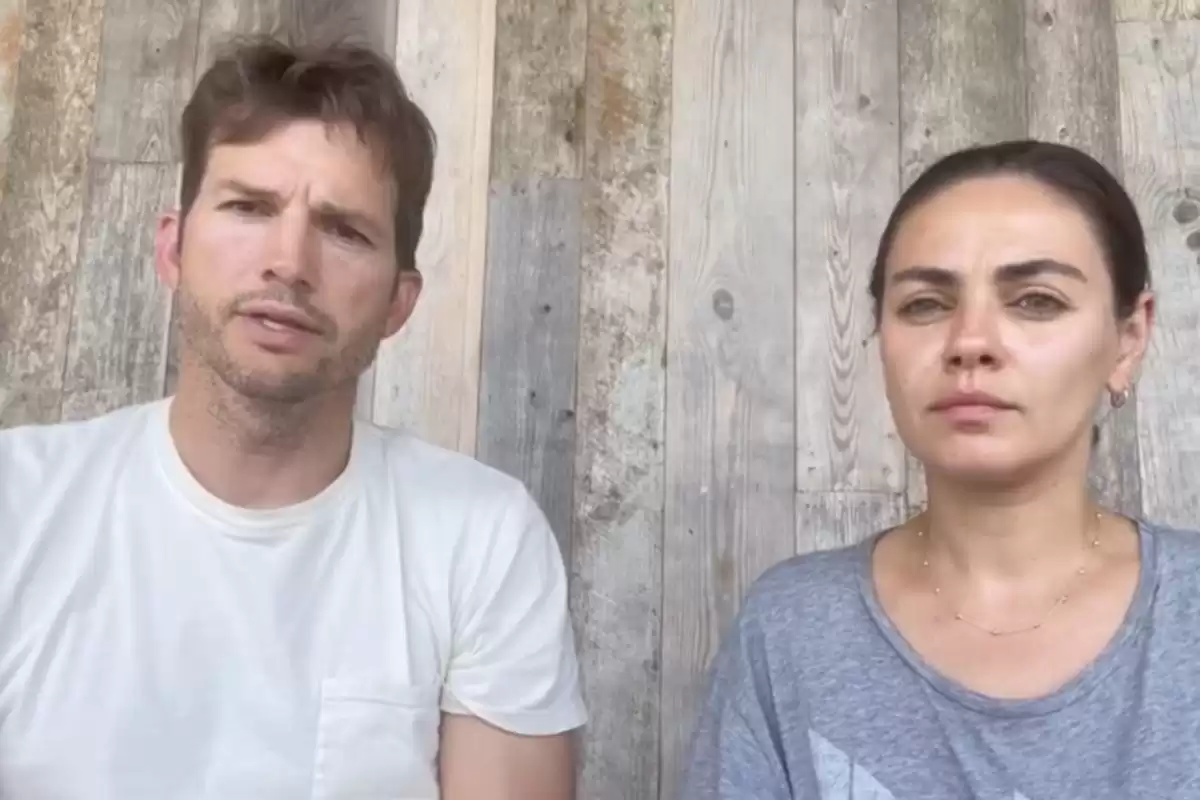Voices: Astonishing Thoughts of Ashton Kutcher and Mila Kunis
Hollywood power couple Ashton Kutcher and Mila Kunis face backlash for supporting their friend, convicted rapist Danny Masterson, in court.
In the past, I firmly believed in the notion that good and evil were completely opposite and could not coexist within a single individual. This concept was comforting and easy to understand - evil was dark, ugly, and hidden away in the shadows and corners of the world. It seemed simple enough to avoid evil by doing the right things: avoiding strangers, not attracting negative attention, and placing trust in figures of authority like teachers and the police.
However, I soon learned that evil can be mundane, ordinary, and subjective. It can manifest in individuals who appear to be kind, loving, and respected by their family and friends. Take, for example, the case of Lucy Letby, a pediatric nurse who was loved by those around her but committed unthinkable acts as a serial killer. Similarly, Danny Masterson, a famous US actor adored by his Hollywood co-stars and friends, was revealed to be a rapist.
This life lesson seems to have escaped Hollywood power couple Ashton Kutcher and Mila Kunis, who have been friends with Masterson for a quarter of a century. They genuinely believe that they know him well and that he has had a significant positive influence on their lives. In fact, they feel so strongly about his "exceptional character" that they wrote letters to the judge overseeing Masterson's case, hoping for a more lenient sentence.
Now, I understand that loving someone who has committed such heinous acts must be horrendous. It is undoubtedly painful, distressing, and bewildering. It shakes the very foundation of one's beliefs and trust in the world when someone you love, trust, and hold close is capable of such cruelty towards others, despite showing kindness and understanding to you personally. It is an utterly horrific experience. However, I find it difficult to sympathize with Kutcher and Kunis, as their letters carry an air of arrogance.
It seems that Kutcher and Kunis see themselves as the "good guys" who support victims. However, their support does not extend to Masterson's victims. They both claim that Masterson was instrumental in preventing them from falling into the typical Hollywood lifestyle of drugs. This portrayal of Masterson as ferociously anti-drugs, following his conviction for drugging and raping two women, does not align with supporting the victims in my eyes.
In a display of astonishing hubris, Kutcher's letter suggests that his character assessment should be considered alongside the testimonies of the women Masterson raped. He even presumes to have knowledge of criminal psychology, stating that he does not believe Masterson poses an ongoing threat to society and that depriving his daughter of a present father would be an additional injustice. But how could Kutcher possibly know?
One might hope that Kunis's letter would offer a different perspective, especially considering her previous outspokenness on sexual harassment and abuse in Hollywood during the Time's Up campaign. However, her letter is equally problematic. She gushes about Masterson's warmth, humor, and positive outlook on life, claiming that he has been a driving force in shaping her character and how she approaches life's challenges. She wholeheartedly vouches for his exceptional character and the positive influence he has had on her and those around him. But what about the women he raped? Kunis conveniently leaves them out of the equation, emphasizing Masterson's role as an amazing friend and older brother figure to her.
In their subsequent apology video, Kutcher and Kunis state that their letters were intended for the judge's eyes and not to undermine the victims' testimonies or re-traumatize them. They claim to have no intention of causing harm and apologize if that has been the result. However, their defense fails to convince many viewers, myself included. They could have chosen not to attempt to influence Masterson's sentencing. They could have refused to be among the 50 people who vouched for a convicted rapist. The problem for Kutcher and Kunis is that their letters reveal more about themselves than they do about Masterson.
It appears that the couple adheres to a simplistic dichotomy of good and evil, which ultimately allows rapists and murderers to hide in plain sight and perpetuates victim-blaming. Christina Ricci eloquently captures the issue with the Kunis-Kutcher letters in an Instagram story she posted shortly after the couple's apology video. She emphasizes that sometimes, the people we love and admire can do horrible things. Just because they didn't commit those acts against us personally doesn't mean they didn't commit them at all. Discrediting the abused is a grave injustice. If we claim to support victims, we must be willing to take this stance.
Since news of the couple's letters broke, a resurfaced video clip shows Kutcher introducing an episode of Punk'd from the early 2000s. In the clip, he describes his pranking victim, Hilary Duff, who was only 15 years old at the time, as one of the girls everyone is waiting for to turn 18, along with the Olsen twins. It is clear that Kutcher is not the most suitable person to be making character witnesses for others.











Comments on Voices: Astonishing Thoughts of Ashton Kutcher and Mila Kunis